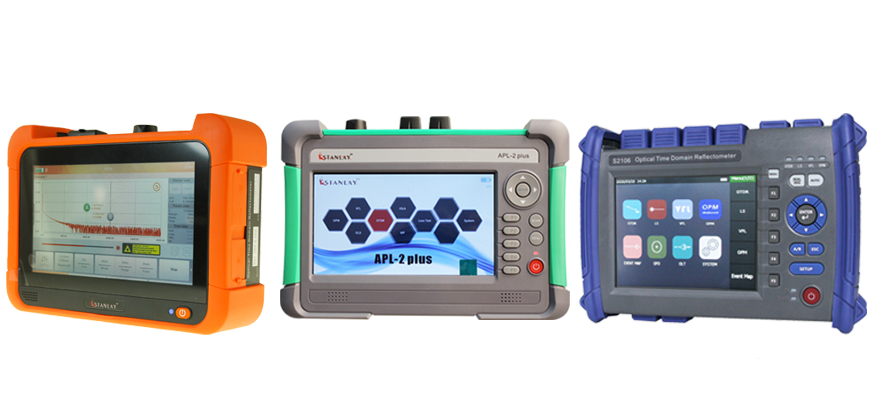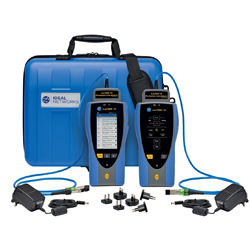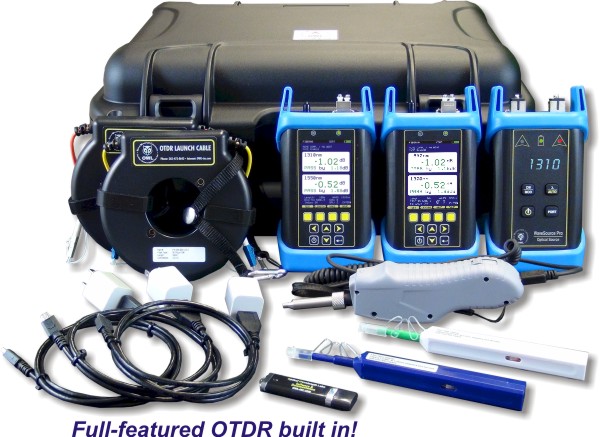Inside an optical measurement system: A detailed breakdown for industrial engineers
Inside an optical measurement system: A detailed breakdown for industrial engineers
Blog Article
Exploring Advanced Techniques in Fiber Measurement and Their Sector Effect
In today's textile sector, exact fiber dimension is important for enhancing production procedures and conference sustainability objectives. With the increase of ingenious imaging and logical tools, you can obtain much deeper understandings right into fiber framework and make-up. This shift not just boosts efficiency yet also lines up with market requirements. As these sophisticated methods develop, you may question exactly how they can better change making techniques and impact the future of textiles.
The Relevance of Accurate Fiber Measurement in Textile Manufacturing

Ingenious Imaging Technologies for Fiber Evaluation
When it pertains to fiber analysis, cutting-edge imaging technologies are game changers. High-resolution microscopy techniques and spectroscopic evaluation techniques offer you with in-depth understandings into fiber framework and make-up. These improvements not just improve precision yet also streamline your measurement procedures.
High-Resolution Microscopy Techniques
High-resolution microscopy strategies have actually changed fiber evaluation, enabling researchers to picture fibers at unmatched degrees of information. With methods like scanning electron microscopy (SEM) and transmission electron microscopy (TEM), you can observe fiber morphology, surface area attributes, and cross-sections with amazing quality. These methods allow you to compare various fiber types and assess their architectural stability. You'll locate that high-resolution imaging aids recognize defects, additions, and other important attributes that can influence product efficiency. Moreover, improvements in electronic imaging software application have actually enhanced photo handling, making it easier to evaluate and interpret information. By taking on these ingenious methods, you can drive higher accuracy in fiber measurement and add to innovations in various sectors, from textiles to composites.
Spectroscopic Analysis Techniques
Spectroscopic evaluation approaches have become effective devices for fiber characterization, offering insights that enhance high-resolution microscopy. You can use strategies like infrared (IR) spectroscopy, which helps determine the chemical composition of fibers by gauging molecular resonances. Raman spectroscopy provides an additional layer of information, enabling you to analyze molecular frameworks via scattering of single light. These approaches not only boost your understanding of fiber properties however also allow the discovery of pollutants and architectural variants. By incorporating spectroscopic strategies with conventional microscopy, you get a much more considerable view of fibers' physical and chemical attributes, increasing your research accuracy. Eventually, these advancements can especially impact material choice and quality assurance in different markets.
Advanced Analytical Equipment and Their Applications
As you discover the domain of fiber dimension, you'll discover that advanced analytical devices play a crucial duty in enhancing precision and performance. Techniques like high-performance fluid chromatography (HPLC) and gas chromatography (GC) allow you to evaluate fiber structure with outstanding accuracy. These devices allow you to recognize specific parts and contaminants, making certain quality assurance in your products.Additionally, utilizing scanning electron microscopy (SEM) offers you an in-depth view of fiber structure, aiding you understand just how different therapies affect performance. Modern software program likewise simplifies data evaluation, making it easier to analyze intricate outcomes and team up throughout teams.

Influence of Fiber Measurement on Manufacturing Efficiency
While accurate fiber dimension may appear like a small click this information, it significantly impacts production effectiveness in the textile market. When you spend in exact fiber dimension strategies, you can maximize resources usage and decrease waste. This leads to far better resource allotment, permitting you to create top quality materials without overusing resources.By understanding fiber characteristics, you can customize production procedures to particular products, enhancing your process and lowering downtime. Knowing the exact tensile toughness of fibers lets you change machinery setups for optimum performance. This not only accelerates manufacturing however also guarantees regular item quality.Moreover, accurate fiber dimension assists you identify concerns early in the assembly line, stopping expensive reworks and delays (optical fibre diameter analyzer). Overall, executing innovative fiber measurement techniques streamlines procedures, increases efficiency, and eventually raises success. In today's open market, every detail counts, and specific fiber dimension is a game-changer
Sustainability Considerations in Fiber Assessment Techniques
When you evaluate fiber, it's vital to ponder best site lasting methods that can reduce ecological impact. Using green dimension approaches and minimizing waste in your assessments can significantly enhance your general sustainability. In addition, incorporating lifecycle evaluation right into your methods can offer a more clear photo of your fiber's environmental impact.
Eco-Friendly Measurement Techniques
Considering the expanding need for sustainability in different markets, adopting environment-friendly dimension approaches for fiber assessment has actually ended up being important. You can start by using safe solvents and biodegradable products in your screening processes. These choices not only minimize environmental influence but also improve safety for your team. Applying electronic dimension techniques can better minimize waste, as they frequently need fewer physical examples and sources. Additionally, leveraging ingenious technologies like near-infrared spectroscopy can yield accurate results without hazardous chemicals. By choosing these greener approaches, you add to an extra sustainable future while preserving high criteria in fiber top quality. Ultimately, incorporating green techniques into your fiber analysis not only aligns with customer worths however additionally increases your brand's online reputation.
Reducing Waste in Evaluation
To efficiently decrease waste in fiber analysis, you can carry out strategies that improve your screening procedures and lessen resource intake. Begin by optimizing example sizes; utilizing smaller samples can produce exact results while conserving materials. Next, buy multifunctional devices that permits for different tests without requiring numerous gadgets, lowering energy and source use. You ought to additionally think about taking on digital devices for data collection and analysis, which can reduce paper waste and improve effectiveness. Routinely training your group on lasting practices guarantees every person's on board with waste decrease goals. Collaborating with providers who prioritize sustainability can additionally boost your efforts, permitting you to examine fibers while preserving a commitment to ecological obligation.
Lifecycle Analysis Combination
Integrating lifecycle evaluation (LCA) into fiber assessment techniques can significantly enhance sustainability efforts. By taking a look at the environmental influences of fibers from manufacturing to disposal, you can identify areas for enhancement. This strategy assists you understand resource intake, energy usage, and waste generation throughout the fiber's life.When you integrate LCA, you're not simply determining fiber qualities; you're likewise considering the environmental impact. This alternative sight enables you to make educated choices that focus on sustainability. You could select fibers that require less sources or have a reduced carbon effect. Ultimately, LCA encourages you to optimize procedures, reduce waste, and advertise eco-friendly options in fiber manufacturing, straightening your exercise with global sustainability goals.
Market Specifications and Regulations Forming Fiber Measurement
As the need for top notch fiber items expands, understanding the industry standards and regulations that govern fiber dimension becomes crucial. These guidelines assure uniformity, precision, and safety and security in the dimension process, which ultimately impacts product quality. Organizations like ASTM International advice and ISO set forth standards that suppliers need to abide by, covering numerous aspects such as fiber identification, stamina testing, and moisture material evaluation.

Future Patterns in Fiber Measurement and Textile Manufacturing
Just how will advancements in modern technology improve fiber measurement and fabric manufacturing? You'll see a shift towards automation and real-time data evaluation, boosting precision and performance. Smart sensors will certainly check fiber properties constantly, permitting for immediate modifications in manufacturing. This indicates you can anticipate greater top quality materials with much less waste.Moreover, AI and device learning will predict trends in customer choices, making it possible for suppliers to adapt quickly. fibre testing equipment. By incorporating blockchain innovation, you'll have much better traceability of materials, guaranteeing sustainability and ethical sourcing.Virtual fact and enhanced fact will certainly play a function too, using immersive training experiences for workers on fiber handling and production processes.As you welcome these modifications, the fabric industry will certainly transform right into a more responsive, lasting, and cutting-edge market, establishing new criteria for high quality and performance. The future of fiber measurement and textile manufacturing is intense, and it's time to jump on board
Often Asked Concerns
What Are the A Lot Of Typical Fiber Types Measured in the Industry?
In the industry, you'll often encounter natural fibers like cotton and woollen, in addition to synthetic alternatives such as polyester and nylon. Each type has distinct buildings, impacting their dimension and application in numerous items.
How Do Fiber Measurements Impact Customer Product Quality?
Fiber dimensions straight influence consumer product top quality by making certain consistency, sturdiness, and performance. When you comprehend these metrics, you can make informed selections, resulting in improved complete satisfaction and much better overall experiences with the items you utilize.
What Training Is Required for Fiber Dimension Technicians?
To end up being a fiber dimension specialist, you'll need customized training in textile scientific research, measurement strategies, and tools operation. Hands-on experience and qualifications can improve your skills, making you proficient in exact fiber analysis and quality control.
Are There Any Kind Of Accreditations for Fiber Measurement Professionals?
Yes, there are accreditations for fiber dimension experts. You can seek choices like the Licensed Optical Fiber Professional (CFOT) or numerous industry-specific credentials that boost your experience and integrity in fiber dimension and testing.
Just How Can Local Business Execute Fiber Measurement Techniques Successfully?
You can carry out fiber measurement techniques effectively by buying inexpensive devices, training your group, and establishing clear procedures. Work together with sector experts and continuously fine-tune your processes to enhance accuracy and effectiveness with time.
Report this page